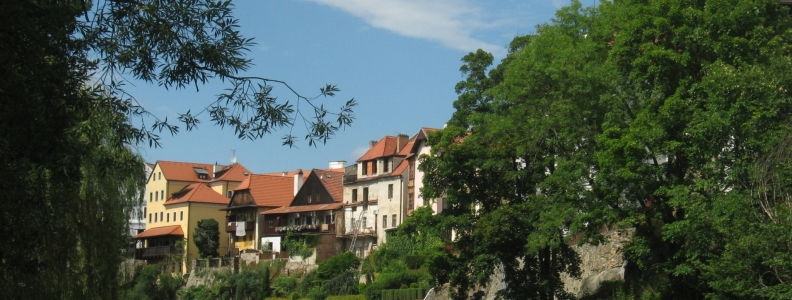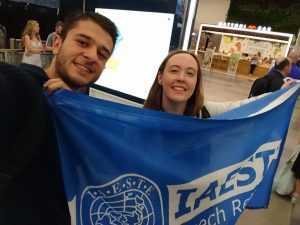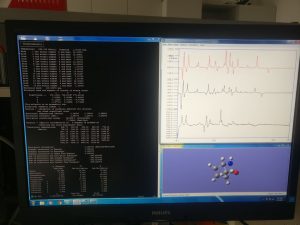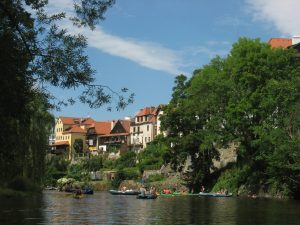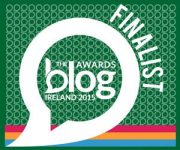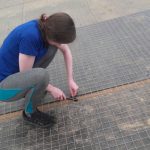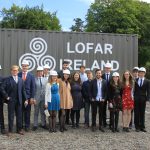UCD Physics with Astronomy & Space Science student Fiona Gallagher explains her experiences on her 6-week summer traineeship in Prague…
This summer following my second year at UCD I was lucky enough to spend 6 weeks working in a scientific institute in Prague. This opportunity came in the form of an IAESTE Traineeship.
IAESTE (International Association for the Exchange of Students for Technical Experience…thank God for acronyms) is a global network that organises paid work experience abroad for students in technical and scientific disciplines. Following an interview in UCD with the IAESTE Ireland committee I was selected for an internship in the Institute of Organic Chemistry and Biochemistry in Prague.
I was initially nervous to accept the position due to the fact that my major is physics, not chemistry. However, my concerns were addressed after some correspondence with my supervisor where he explained my work would be within a physical chemistry research group and would involve computational modelling of molecular properties which sounded pretty cool to me. Thankfully I would not need to handle delicate glassware and chemicals. (I was having flashbacks to leaving cert chemistry labs. So many shattered pipettes…)
Upon arrival in Prague I was met at the airport by an IAESTE Czech Republic committee member who settled my nerves and told me all about Prague and what I needed to know. Accommodation
was organised for me in a student dorm near the metro line that brought me to my workplace. Within the first few days I had met other trainees from around the world living in the same dorm, including an engineering student from Norway who happened to work in the same institute as I did. Having her familiar face around my place of work helped me to settle in, even though we were not assigned to the same research group. It was also a perk having somebody to keep me awake during the 8am morning commute.
My first day was nerve-wracking as I met my supervisor and group and got shown around the state-of-the-art labs and facilities. Being honest, at first I felt wholly out of my depth as an undergraduate among PhD and Masters students. This feeling soon dissipated as I got to know everyone at a barbecue during my first week. My colleagues were mainly Czech and Slovakian researchers but they all spoke fluent English which made things a lot easier.
As for the actual work side of things, it was all pretty daunting at the start as I got to grips with the unfamiliar programs and software environments. I had no previous experience with the Linux command line which I needed to use to get anything to run! But after a few days of practice and some help from my supervisor I was running computations on basic molecules and felt a lot more confident.
Over the course of my traineeship I eventually worked my way up to larger organic molecules whose spectroscopic properties were being actively studied by the group. I compared and discussed my various computationally modelled spectra with those obtained experimentally by other scientists and we could then see which methods of computation worked best. Discussing my work with other researchers was rewarding and a confidence boost in my ability to do science!
I had weekends off work so I had the chance to travel with the other IAESTE trainees to different cities including Vienna and Dresden. A highlight for me was 3 days of camping and canoeing down the Vltava river in southern Czech Republic where I met some great people but also got awful sunburn… but it was worth it. I enjoyed plenty of traditional food and even got a taste for some Czech beers despite always hating the taste of beer back home.
Overall, I was delighted to get the chance to experience a new country and culture while also gaining valuable experience working in a scientific institute. It gave me an insight into what it would be like to work in research after my degree and now I think it is something I would happily consider doing. I would encourage anyone to take an internship if the opportunity presents itself because it’s such an eye-opening experience.


